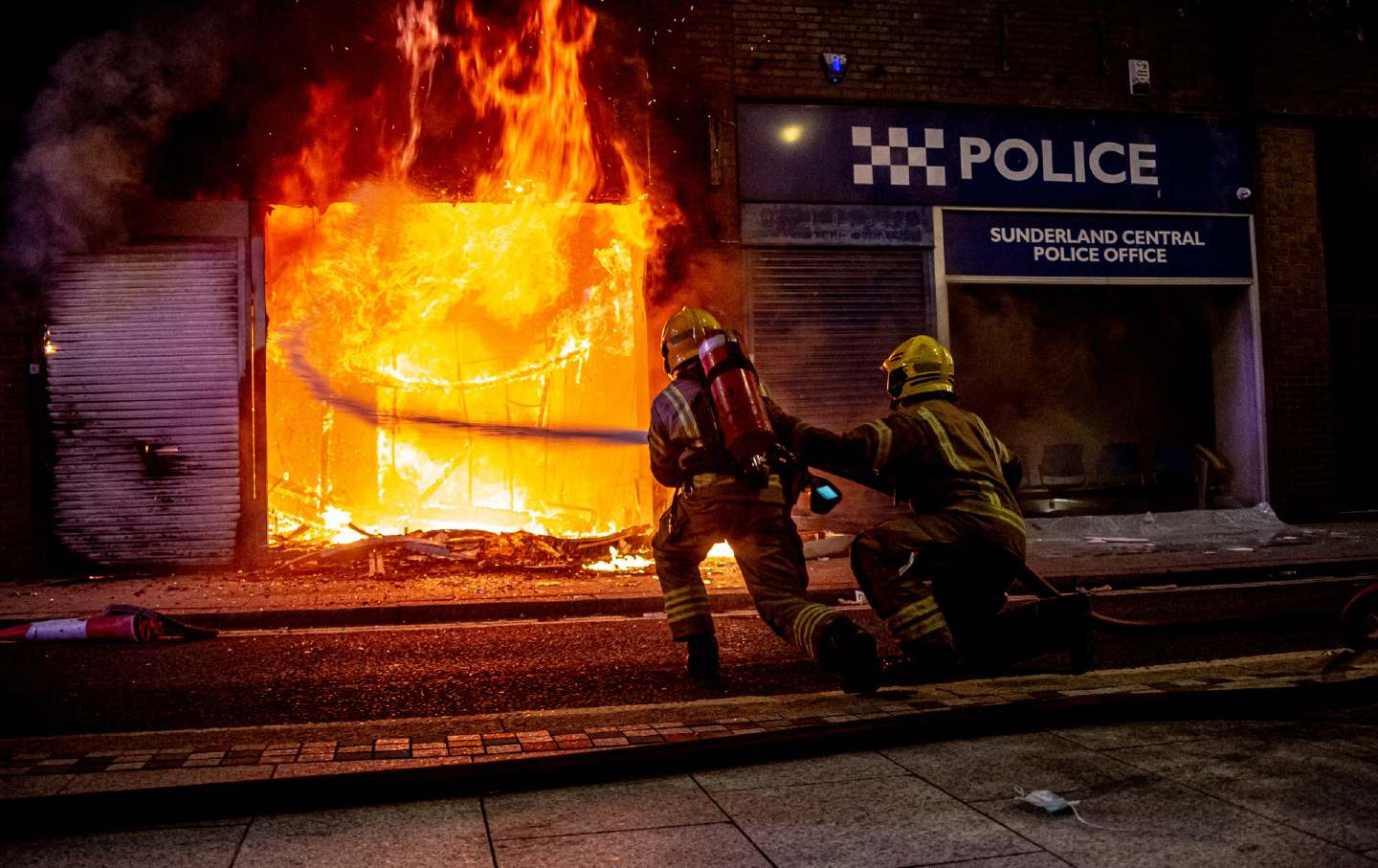Is Social Media Fueling Far-Right Riots?
On this episode of Tech Won’t Save Us, Hussein Kesvani on far-right attacks in the UK.

Here's where to find podcasts from The Nation. Political talk without the boring parts, featuring the writers, activists and artists who shape the news, from a progressive perspective.
On this episode of Tech Won't Save Us, Paris Marx is joined by Hussein Kesvani to discuss the far-right attacks that happened after the Southport stabbing in the UK and how larger structural issues in media, politics, and tech laid the groundwork for violence against visible minorities.
Hussein Kesvani is a co-host of Trashfuture and Ten Thousand Posts.
Advertising Inquiries: https://redcircle.com/brands
Privacy & Opt-Out: https://redcircle.com/privacy

Far-right activists hold an “Enough Is Enough” protest on August 2, 2024 in Sunderland, England. After the murders of three girls in Southport, misinformation spread via social media and fueled acts of violent rioting from far-right actors across England.
(Photo by Drik / Getty Images)On this episode of Tech Won’t Save Us, we’re joined by Hussein Kesvani to discuss the far-right attacks that happened after the Southport stabbing in the UK and how larger structural issues in media, politics, and tech laid the groundwork for violence against visible minorities.
Hussein Kesvani is a cohost of Trashfuture and Ten Thousand Posts.

Here's where to find podcasts from The Nation. Political talk without the boring parts, featuring the writers, activists and artists who shape the news, from a progressive perspective.
On this episode of Tech Won’t Save Us, Paris Marx is joined by Amanda Mull to discuss the data-informed decisions that are changing the way we all experience air travel, mostly for the worse.
Amanda Mull is a senior reporter and Buying Power columnist at Bloomberg Businessweek.
Advertising Inquiries: https://redcircle.com/brands
Privacy & Opt-Out: https://redcircle.com/privacy
